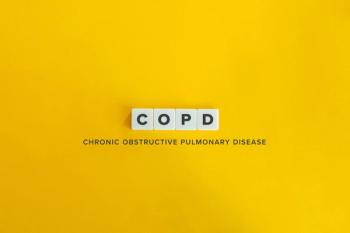
Lower Education a Risk Factor for Uncontrolled Asthma in Adults
A lower level of education was associated with an increased risk for uncontrolled asthma, particularly in adults with non-atopic asthma and those who used inhaled corticosteroids daily.
For individuals with adult-onset asthma, lower education may be associated with an increased risk for uncontrolled asthma, according to study results published in the Journal of Asthma.1
Known risk factors for uncontrolled asthma include smoking, obesity, and socioeconomic factors. While education, income, and occupation generally encompass the overarching socioeconomic category, the specific role that education has on uncontrolled asthma is not well studied.
To address this knowledge gap, investigators from Finland, Sweden, and Norway, conducted a multicenter analysis to assess the effect that education has on asthma control among patients with adult-onset asthma in Finland and Sweden.
Adults in Finland and Sweden with current asthma with onset age after 15 years were included in the analysis, which was comprised of 3 studies: the Seinäjoki Adult Asthma Study (SAAS) in Finland, the asthma cohort from the Obstructive Lung Disease in Northern Sweden study (OLIN), and the West Sweden Asthma Study (WSAS).
In combining the 3 study groups, asthma control test (ACT) scores were available for 896 adults. While gender and asthma control were generally the same amongst the 3 studies, participants in the OLIN study were older and often more obese; however, they were less often smokers or daily inhaled corticosteroid (ICS) users compared with the other 2 groups. Participants in the SAAS group were more likely nonatopic and were less educated.
In total, 61% of participants were women, 11% were current smokers, 60% used ICS daily, and 56% had atopic asthma; 27% participants reported uncontrolled asthma. In terms of education, , 35% had a primary education, 36% had a secondary education, and 29% had a tertiary level of education.
Compared with adults with primary and secondary education, those with tertiary education were less likely to be current smokers. Individuals with primary education were more likely to use ICS (odds ratio [OR], 2.33; adjusted OR [aOR], 1.92) and have nonatopic asthma (OR, 3.10; aOR, 3.42) compared to those with secondary and tertiary education. In addition, ACT scores were lower among adults with primary education.
Results from the adjusted analysis suggest that primary level education had an increased risk for uncontrolled asthma compared with tertiary education; however, among patients who did not use daily ICS, lower education levels were not linked to uncontrolled asthma.
“Overall, our study suggests that educational level should be considered in the management of asthma and patient education is an important part in the treatment,” the authors noted. “Therefore, more attention should be given to patients with asthma and primary level of education regarding adherence to treatment and adherence to life style-related recommendations, smoking cessation, eating habits and increased physical activity, to improve outcome.”
Reference
1. Ilmarinen P, Stridsman C, Bashir M, et al. Level of education and asthma control in adult-onset asthma. J Asthma. 2022;59(4):840-849. doi:10.1080/02770903.2021.1871742
Newsletter
Pharmacy practice is always changing. Stay ahead of the curve with the Drug Topics newsletter and get the latest drug information, industry trends, and patient care tips.























